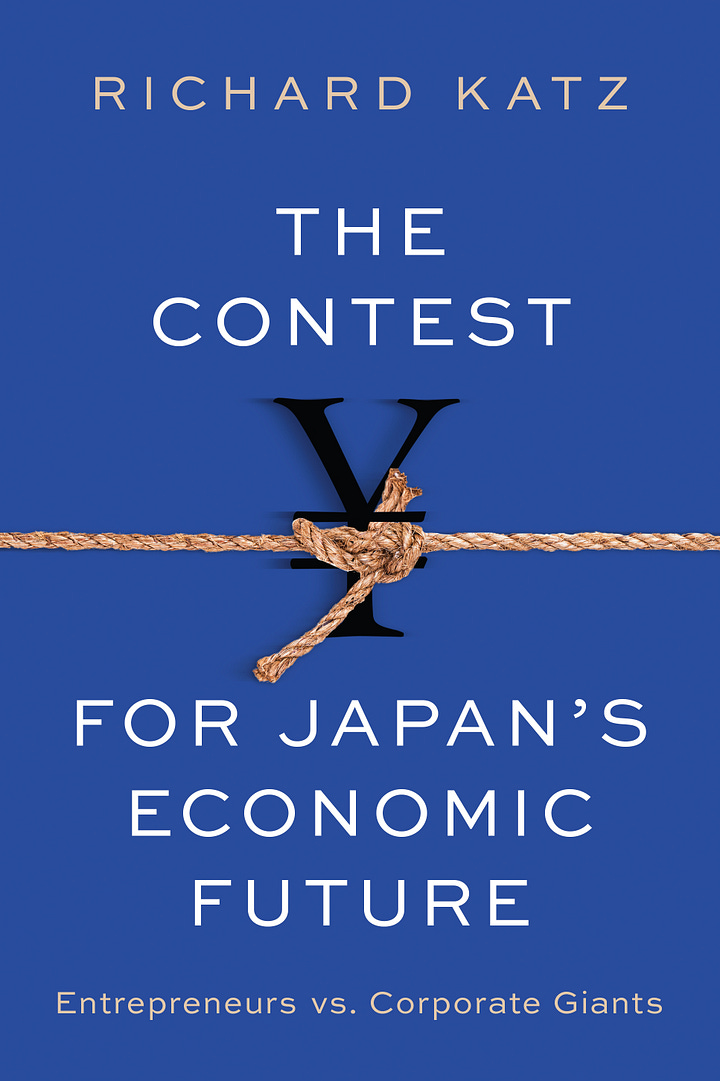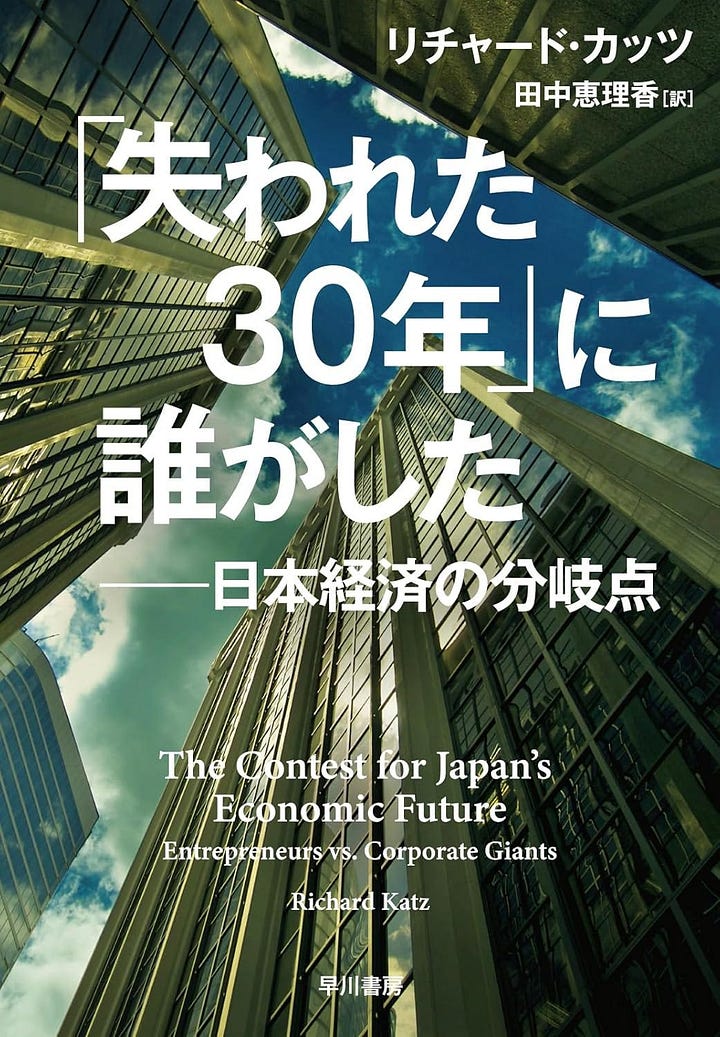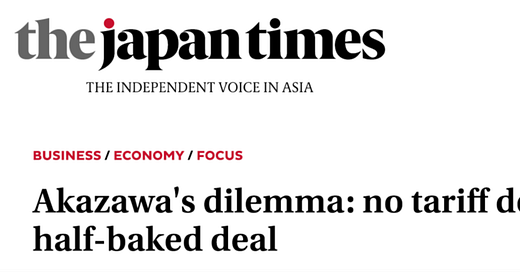I’m Cited in Japan Times: Japan Should Unite With Others To Resist Trump Trade War
Tokyo placing too much confidence in financial markets
I am cited in today’s Japan Times saying that Japan should form a united front with other countries subject to Trump’s trade war. Up to now, Tokyo has sought special exemptions for Japan from the measures applied to others. Trump has refused. He has refused even to discuss the 25% tariffs he has put on automotive imports from all countries, a measure affecting nearly a third of Japan’s exports to the US. As the Japan Times reports, and I’ve reported before, Tokyo refuses to negotiate if autos are not on the agenda. They have the support of the business community, including the automakers, on this stance.
So, it’s time to coordinate with other countries, from the EU to key Asian exporters like Korea, Taiwan, and some Southeast Asian nations, among others. This does not mean that Tokyo has to retaliate if the European Union decides to do so. However, as I told the Japan Times. “You could agree [with others] that none of us will make a deal unless autos are included, which doesn't mean you agree to retaliate, but you could agree that unless autos are put on the table, none of us do it [accept a deal].” This international coalition could also agree that, to prevent Trump from playing “divide and conquer,” every nation should get the same “most favored nation” terms. No nation in the coalition would accept conditions better than the rest.
Autos are just one example. The same approach could apply to Trump’s “reciprocal” tariffs or other sectoral tariffs: nations will not compete with each other to get better terms and will find a way to negotiate as a group.
I happily admit that I’m not a professional negotiator, and the latter are better equipped to design a feasible a coordination strategy that other nations, including the EU, would accept. I know that some policymakers in Tokyo are now thinking about coordination, but are not sure which nations to coordinate with and what the terms of the coordination should be.
Of course, Trump could always refuse to negotiate with others and maintain his high tariffs. However, should he do so, financial markets will likely rebel again.
As of now, Tokyo is, in my view, placing undue confidence that, even if Japan and others maintain an “every man for himself” approach. the markets will compel Trump to back down. However, as I told the Japan Times, the market has overreacted with irrational exuberance to every tiny concession by Washington. “Trump threatens to cut off both of your arms, and then he only cuts off one arm. The financial markets say ‘Great! Whoa! Terrific! We won! Trump surrendered — he’s only cutting off one arm!’...Financial markets are really manic depressive. They gyrate much more than the underlying reality. If you want the financial markets to be an ally — which I think is a good strategy — then you have to give them some reason to be upset with Trump.” Resistance by Trump to such a united front approach would be a powerful reason.
For the full article (behind a paywall) see: https://www.japantimes.co.jp/business/2025/05/16/economy/tariff-half-baked/


To receive new posts and support my work, consider becoming a free or paid subscriber.
To provide more support, donate several subs at $50 each. You do not need to name the sub recipients, just how many. This is a one-time contribution; it does not repeat automatically. Please click the button below.


